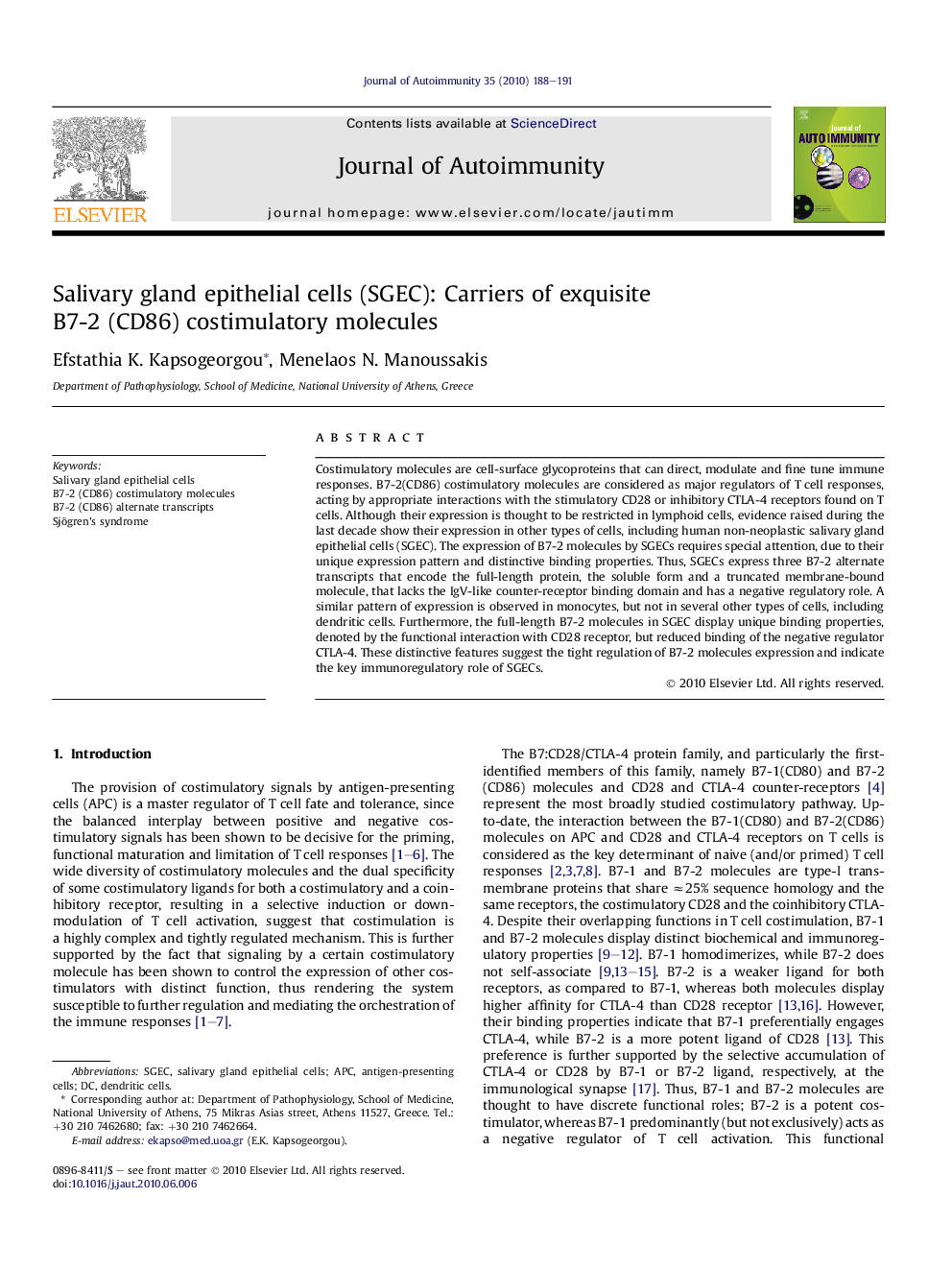| Article ID | Journal | Published Year | Pages | File Type |
|---|---|---|---|---|
| 3368055 | Journal of Autoimmunity | 2010 | 4 Pages |
Costimulatory molecules are cell-surface glycoproteins that can direct, modulate and fine tune immune responses. B7-2(CD86) costimulatory molecules are considered as major regulators of T cell responses, acting by appropriate interactions with the stimulatory CD28 or inhibitory CTLA-4 receptors found on T cells. Although their expression is thought to be restricted in lymphoid cells, evidence raised during the last decade show their expression in other types of cells, including human non-neoplastic salivary gland epithelial cells (SGEC). The expression of B7-2 molecules by SGECs requires special attention, due to their unique expression pattern and distinctive binding properties. Thus, SGECs express three B7-2 alternate transcripts that encode the full-length protein, the soluble form and a truncated membrane-bound molecule, that lacks the IgV-like counter-receptor binding domain and has a negative regulatory role. A similar pattern of expression is observed in monocytes, but not in several other types of cells, including dendritic cells. Furthermore, the full-length B7-2 molecules in SGEC display unique binding properties, denoted by the functional interaction with CD28 receptor, but reduced binding of the negative regulator CTLA-4. These distinctive features suggest the tight regulation of B7-2 molecules expression and indicate the key immunoregulatory role of SGECs.
